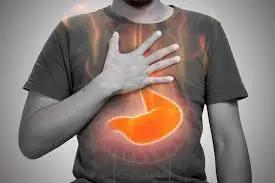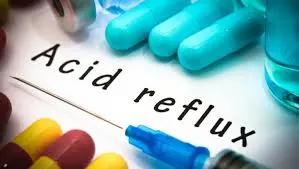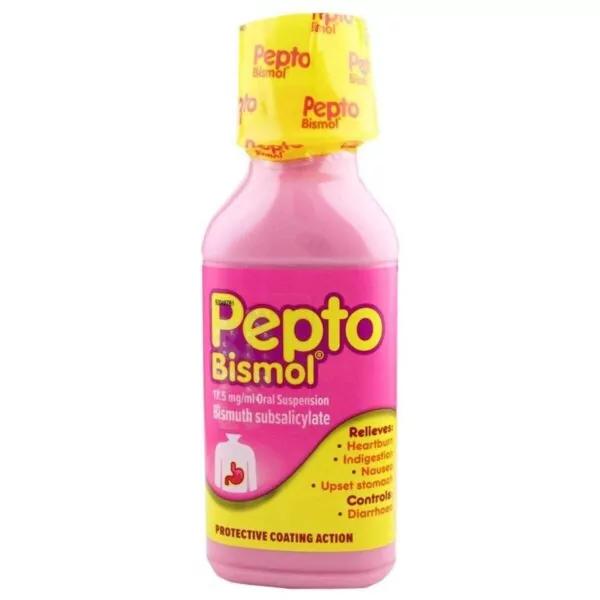Gastroesophageal Reflux Disease
Get valuable insights into Gastroesophageal Reflux Disease, including its causes, symptoms, prevention strategies, and treatment options, while also learning about how you can lower the cost of the medications used to treat Gastroesophageal Reflux Disease.

MEDICAL INFORMATION
Gastroesophageal Reflux Disease Key Facts
Related Medications
Gastroesophageal reflux disease (referred to in the US as GERD reflux disease and in the UK as GORD) is a chronic digestive disorder characterized by the backward flow of stomach acid and other contents into the esophagus. Here, we provide an in-depth comprehensive overview of Gastroesophageal reflux disease, including its causes, risk factors, symptoms, diagnosis, and treatment options.
What is gastro-oesophageal reflux disease?
Gastro-oesophageal Reflux Disease is a chronic gastrointestinal disorder andoccurs when the lower esophageal sphincter (LES), a muscular ring that normally prevents the backward flow of stomach acid, becomes weak or relaxes inappropriately. This allows acid and stomach contents to flow upward into the esophagus, causing irritation and inflammation.
What are the causes and risk factors associated with gastro-oesophageal reflux disease?
Gastroesophageal reflux disease has several causes and risk factors that contribute to its development. Understanding these factors is important in managing and preventing the condition. Here are the main causes and risk factors associated with Gastroesophageal reflux disease:
Weak or Malfunctioning Lower Esophageal Sphincter (LES)
The LES is a circular band of muscle located between the esophagus and stomach. Its role is to relax to allow food and liquids to enter the stomach and then close to prevent the backward flow of stomach acid into the esophagus. If the LES is weak or malfunctions, it may not close properly, leading to acid reflux and Gastroesophageal reflux disease
Hiatal Hernia
A hiatal hernia or hiatus hernia occurs when a portion of the stomach pushes through the diaphragm and into the chest cavity. This can weaken the LES and disrupt its ability to prevent acid reflux
Obesity
Excess weight, particularly around the abdomen, increases pressure on the stomach and can cause the LES to relax, promoting acid reflux
Pregnancy
Hormonal changes during pregnancy can relax the LES, allowing stomach acid to flow back into the esophagus. Additionally, the growing uterus can exert pressure on the stomach, further contributing to acid reflux
Certain Foods and Beverages
Certain foods and beverages can trigger or worsen Gastroesophageal reflux disease symptoms. These may include spicy foods, fatty foods, citrus fruits, tomatoes, chocolate, caffeinated beverages (coffee, tea), carbonated drinks, and alcohol.
Smoking
Smoking weakens the LES and impairs the production of saliva, which helps neutralize acid in the esophagus. Additionally, smoking can worsen coughing, which can exacerbate Gastroesophageal reflux disease symptoms.
Medications
Certain medications can contribute to Gastroesophageal reflux disease symptoms or worsen existing reflux. These may include non-steroidal anti-inflammatory drugs (NSAIDs), aspirin, some sedatives and antidepressants, calcium channel blockers, and certain asthma medications.
Other Medical Conditions
Several medical conditions are associated with an increased risk of developing Gastroesophageal reflux disease. These include asthma, diabetes, connective tissue disorders (such as scleroderma), and delayed stomach emptying (gastroparesis). It’s important to note that while these factors increase the risk of developing Gastroesophageal reflux disease, not everyone with these risk factors will develop the condition. Likewise, individuals without these risk factors can still develop Gastroesophageal reflux disease.
Managing these risk factors through lifestyle modifications, such as maintaining a healthy weight, avoiding trigger foods, quitting smoking, and addressing underlying medical conditions, can help reduce the likelihood of developing Gastroesophageal reflux disease or alleviate its symptoms.
What are the symptoms of GERD/GORD (gastro-oesophageal reflux disease)?
Gastroesophageal reflux disease can cause a range of symptoms that vary in severity and frequency among individuals. The most common symptoms of Gastroesophageal reflux disease include:
Heartburn
This is the hallmark symptom of Gastroesophageal reflux disease. It is characterized by a burning sensation or discomfort in the chest, often occurring after eating or when lying down. The sensation may radiate from the chest to the neck, throat, and even the jaw
Regurgitation
A sour or bitter taste in the mouth, often accompanied by the sensation of acid or food coming back up into the throat or mouth. This can occur after eating or while lying down
Chest Pain
Some individuals with Gastroesophageal reflux disease may experience chest pain that can be similar to heart-related chest pain (angina). However, it is important to differentiate between Gastroesophageal reflux disease related chest pain and cardiac-related chest pain to ensure proper evaluation and treatment
Dysphagia
Difficulty or discomfort when swallowing. It may feel as though food is sticking in the throat or chest. This symptom can be indicative of narrowing in the esophagus due to chronic acid exposure
Chronic Cough
A persistent cough that is often worse at night or upon waking in the morning. It may be caused by irritation of the throat and airways due to acid reflux
Hoarseness or Sore Throat
Acid reflux into the throat can cause inflammation and irritation, leading to a hoarse voice or a sore throat
Laryngitis
Inflammation of the larynx (voice box) due to acid reflux, resulting in hoarseness or voice changes.
Dental Problems
Frequent exposure of teeth to stomach acid can lead to enamel erosion, tooth decay, and other dental issues.
Asthma or Respiratory Symptoms
Some individuals with Gastroesophageal reflux disease may experience worsened asthma symptoms, coughing, wheezing, or shortness of breath, especially at night.
Peptic Ulcers
The leakage of stomach acid into the esophagus in individuals with GORD/GERD can harm the esophageal lining, a condition known as oesophagitis. This can lead to the formation of ulcers. These ulcers have the potential to bleed, resulting in pain and difficulties in swallowing.
It’s important to note that not everyone with Gastroesophageal reflux disease experiences all of these symptoms. Some individuals may only have mild symptoms, while others may have more severe and frequent symptoms. Additionally, Gastroesophageal reflux disease symptoms can fluctuate over time.
If you suspect you have Gastroesophageal reflux disease or experience any of these symptoms regularly, it is important to consult with a healthcare professional for an accurate diagnosis and appropriate treatment. Effective management of Gastroesophageal reflux disease can help alleviate symptoms and prevent complications.
How is gastro-oesophageal reflux disease diagnosed?
The diagnosis of Gastroesophageal Reflux Disease involves a combination of medical history assessment, physical examination, and diagnostic tests. A healthcare professional, usually a gastroenterologist, will evaluate your symptoms, medical history, and perform the necessary tests to confirm the diagnosis. Here are the common methods used for diagnosing Gastroesophageal reflux disease:
Medical History Assessment
Your healthcare provider will ask detailed questions about your symptoms, their frequency, duration, and any factors that worsen or alleviate them. They may inquire about your eating habits, lifestyle, and medication use.
Physical Examination
A physical examination by a gastroenterology professional may be conducted to check for signs associated with Gastroesophageal reflux disease, such as tenderness in the upper abdomen or chest, presence of a hiatal hernia, or other potential causes of symptoms.
Symptom Evaluation
The frequency and severity of your symptoms, such as heartburn, regurgitation, and cough, play a crucial role in the diagnosis. Your doctor may use standardized questionnaires or scoring systems to assess the impact of Gastroesophageal reflux disease on your daily life.
Trial of Empirical Treatment
In some cases, if your symptoms strongly suggest Gastroesophageal reflux disease but a definitive diagnosis is challenging, your healthcare provider may recommend a trial of acid-suppressing medications (proton pump inhibitors or H2 receptor blockers) to see if the symptoms improve. If there is a significant reduction in symptoms, it can support a Gastroesophageal reflux disease diagnosis.
Upper Endoscopy
An upper endoscopy involves passing a thin, flexible tube with a camera (endoscope) through your mouth into the esophagus, stomach, and duodenum. This allows the doctor to visually examine the esophageal lining for signs of inflammation (esophagitis), irritation, or other abnormalities.
Esophageal pH Monitoring
Esophageal pH monitoring measures the frequency and duration of acid reflux episodes. It helps determine the extent of acid exposure in the esophagus over a 24 to 48-hour period. This test involves placing a thin tube through the nose into the esophagus and connecting it to a portable recorder that measures pH levels.
Barium Swallow
A barium swallow is a type of X-ray test where you drink a contrast material containing barium, which coats the esophagus and stomach. X-ray images are then taken while you swallow to evaluate the structure and function of the esophagus.
Manometry
Esophageal manometry assesses the pressure and coordination of muscle contractions in the esophagus. It involves inserting a thin tube through the nose into the esophagus to measure muscle activity and the functionality of the lower esophageal sphincter (LES).
The specific diagnostic tests used may vary based on the severity of symptoms, response to initial treatments, and the healthcare provider’s clinical judgment.
It’s important to consult with a healthcare professional for an accurate diagnosis of Gastroesophageal reflux disease. They will determine the most appropriate diagnostic approach based on your individual case.
What are the treatment options for gastro-oesophageal reflux disease?
Gastroesophageal reflux disease can be managed through various treatment options. The goal of treatment is to alleviate symptoms, heal any esophageal damage, and prevent complications. The treatment approach may involve lifestyle modifications, medication, or in some cases, surgery. Here are the common treatment options for Gastroesophageal reflux disease:
Lifestyle changes
- Dietary changes: Avoid trigger foods that worsen symptoms, such as spicy or fatty foods, citrus fruits, tomatoes, chocolate, caffeine, and carbonated drinks. Opt for smaller, more frequent meals and try to avoid eating close to bedtime
- Weight management: Maintain a healthy weight or aim for weight loss if overweight. Excess weight can increase abdominal pressure and worsen reflux symptoms
- Elevation of the head of the bed: Raise the head of your bed by 6 to 8 inches using blocks or a wedge pillow to prevent acid reflux during sleep
- Smoking cessation: Quit smoking, as smoking weakens the lower esophageal sphincter (LES) and increases acid production
Medications for gastro-oesophageal reflux disease
- Over-the-counter (OTC) antacids: These provide temporary relief by neutralizing stomach acid. They can be taken as needed to alleviate heartburn symptoms
- H2 receptor blockers: OTC or prescription-strength medications that reduce acid production in the stomach. They can provide longer-lasting relief than antacids
- Proton pump inhibitors (PPIs): Prescription-strength medications that block acid production. PPIs are highly effective in reducing acid reflux and promoting healing of the esophagus. They are often taken on a regular basis for a specified period
- Prokinetics: Medications that help strengthen the LES and improve esophageal motility. They can aid in emptying the stomach more effectively, reducing reflux
- Foam barriers: Prescription medications that form a foam barrier on top of the stomach contents, preventing reflux into the esophagus
Surgical Interventions
- LINX device: A small magnetic ring is surgically implanted around the LES to strengthen its closure and prevent acid reflux. The magnetic ring allows for normal swallowing
- Endoscopic procedures: Minimally invasive procedures, such as endoscopic suturing or radiofrequency ablation, can be used to tighten the LES and improve symptoms
- In addition to treatment, regular follow-up with your healthcare provider and ongoing management of lifestyle modifications are essential for long-term control of Gastroesophageal reflux disease symptoms and prevention of complications
- Fundoplication: For patients with GERD/GORD who either don’t fully respond to medications or can’t take them due to other reasons, the ‘gold standard’ treatment is the Laparoscopic Nissen fundoplication. This procedure, which is the most frequently executed anti-reflux surgery, involves making small incisions and monitoring the operation through a video screen. In the process, the upper part of the stomach, known as the fundus, is wrapped around the lower end of the esophagus, a technique often referred to as a ‘wrap.’ This effectively mends the malfunctioning valve at the end of the esophagus, a common issue in GERD patients. Unlike medications, this surgical procedure halts all reflux, including both digestive enzymes and acid, offering a potential cure that medications can’t achieve. If a hiatal or hiatus hernia is detected, it is concurrently corrected during the Nissen fundoplication procedure
What are the complications and long-term management options for gastro-oesophageal reflux disease?
Gastroesophageal reflux disease can lead to various complications if left untreated or poorly managed. Long-term management aims to control symptoms, prevent complications, and improve quality of life. Here are some potential complications of Gastroesophageal reflux disease and the available long-term management options:
Esophagitis
Persistent exposure to stomach acid can cause inflammation of the esophagus, leading to esophagitis. Long-term management includes:
- Medications: Proton pump inhibitors (PPIs) or H2 receptor blockers can help reduce acid production and promote healing of the esophageal lining
- Lifestyle modifications: Avoiding trigger foods, maintaining a healthy weight, and elevating the head of the bed can help alleviate symptoms and reduce esophageal irritation
Esophageal Strictures
Scar tissue can form in the esophagus due to chronic inflammation, leading to narrowing or strictures. Management options include:
- Dilation: A procedure in which an endoscope with a special balloon or dilator is used to stretch and widen the narrowed area of the esophagus
- Medications: PPIs or corticosteroids may be prescribed to reduce inflammation and prevent further narrowing
Esophageal Cancer
Individuals with GERD face a marginally increased likelihood of developing esophageal adenocarcinoma. This risk appears to escalate in those experiencing more frequent symptoms. However, it’s important to note that while GERD is quite prevalent, the majority of those afflicted with this condition do not progress to esophageal cancer.
Barrett’s Esophagus
Chronic acid exposure can cause changes in the cells lining the lower esophagus, leading to a condition called Barrett’s esophagus. Long-term management involves:
- Regular monitoring: Regular endoscopies with biopsies are performed to monitor cell changes and detect any progression to precancerous or cancerous conditions
- Medications: PPIs may be used to reduce acid reflux and prevent further damage
- Lifestyle modifications: Adopting healthy lifestyle habits, such as weight management and avoiding trigger foods, can help control symptoms
Dental Complications
Frequent exposure to stomach acid can lead to dental problems like tooth enamel erosion and decay. Management options include:
- Good oral hygiene: Regular brushing, flossing, and dental check-ups are important to maintain oral health
- Acid-neutralizing rinses: Using mouthwashes or rinses that neutralize acid can help protect tooth enamel
- Avoiding brushing immediately after acid reflux episodes: Acid can weaken tooth enamel, so it’s best to rinse the mouth with water or use an acid-neutralizing rinse before brushing
Respiratory Complications
Acid reflux can trigger or worsen respiratory conditions such as asthma, chronic cough, or recurrent pneumonia. Management options include:
- Medications: Asthma medications, such as bronchodilators and inhaled corticosteroids, may be prescribed to manage respiratory symptoms
- Gastroesophageal reflux disease treatment: Effectively managing Gastroesophageal reflux disease symptoms and reducing acid reflux can help alleviate respiratory symptoms
- Consultation with a specialist: Collaboration between a gastroenterologist and a pulmonologist may be beneficial for comprehensive management of both Gastroesophageal reflux disease and respiratory conditions
What medications are used for gastro-oesophageal reflux disease?
1. Proton Pump Inhibitors (PPIs):
- Omeprazole (Prilosec)
- Esomeprazole (Nexium)
- Lansoprazole (Prevacid)
- Pantoprazole (Protonix)
- Rabeprazole (Aciphex)
2. Histamine-2 Receptor Antagonists (H2 blockers):
- Ranitidine (Zantac)
- Famotidine (Pepcid)
- Cimetidine (Tagamet)
- Nizatidine (Axid)
3. Antacids:
- Aluminum hydroxide
- Magnesium hydroxide
- Calcium carbonate
4. Prokinetics:
- Metoclopramide (Reglan)
- Domperidone (Motilium)
5. Foam barriers:
- Gaviscon
6. Alginate-based medications:
- Gaviscon Advance
Summary
Gastro-oesophageal Reflux Disease is a chronic condition characterized by the backward flow of stomach acid into the esophagus/oesophagus, causing various symptoms and potential complications. Understanding the causes, recognizing the symptoms, and seeking appropriate diagnosis and treatment are crucial for managing Gastro-oesophageal Reflux Disease effectively. By adopting lifestyle modifications, taking prescribed medications, and maintaining regular follow-up care, individuals with Gastro-oesophageal Reflux Disease can find relief from symptoms and prevent long-term complications.
Medical Disclaimer
NowPatient has taken all reasonable steps to ensure that all material is factually accurate, complete, and current. However, the knowledge and experience of a qualified healthcare professional should always be sought after instead of using the information on this page. Before taking any drug, you should always speak to your doctor or another qualified healthcare provider.
The information provided here about medications is subject to change and is not meant to include all uses, precautions, warnings, directions, drug interactions, allergic reactions, or negative effects. The absence of warnings or other information for a particular medication does not imply that the medication or medication combination is appropriate for all patients or for all possible purposes.











